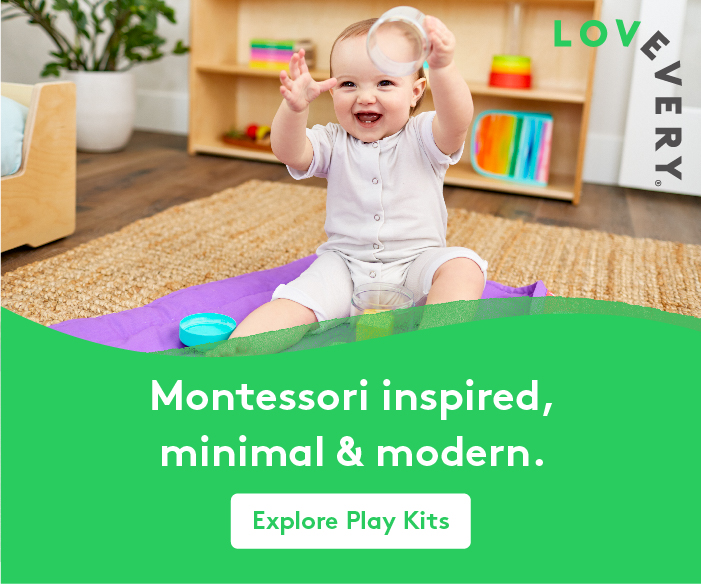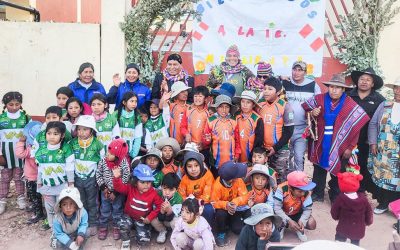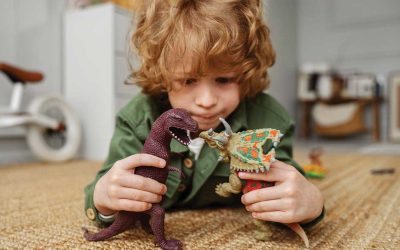Kasey Hughes, Founder and Wellness Coach from Mayhem to Mindful believes that a simple, yet very powerful, antidote to modern daily stresses is combining meditation with positive psychology. And teaching kids mindfulness from an early age can set them up with these essentials skills for life.
“Mindfulness and Positive Psychology based programs give children from Prep to Year 12 the skills, practice and support to utilise coping strategies that lessen the symptoms of anxiety and stress. Through these programs, we aim to give children lifelong skills for better mental health for the long term – into their teen and adult years.”
“As a parent or care giver we can help build our child’s emotional intelligence through positive role modelling, labelling and validating their feelings, practicing mindfulness at home and developing appropriate calming strategies to use when they feel overwhelmed,” Kasey said.
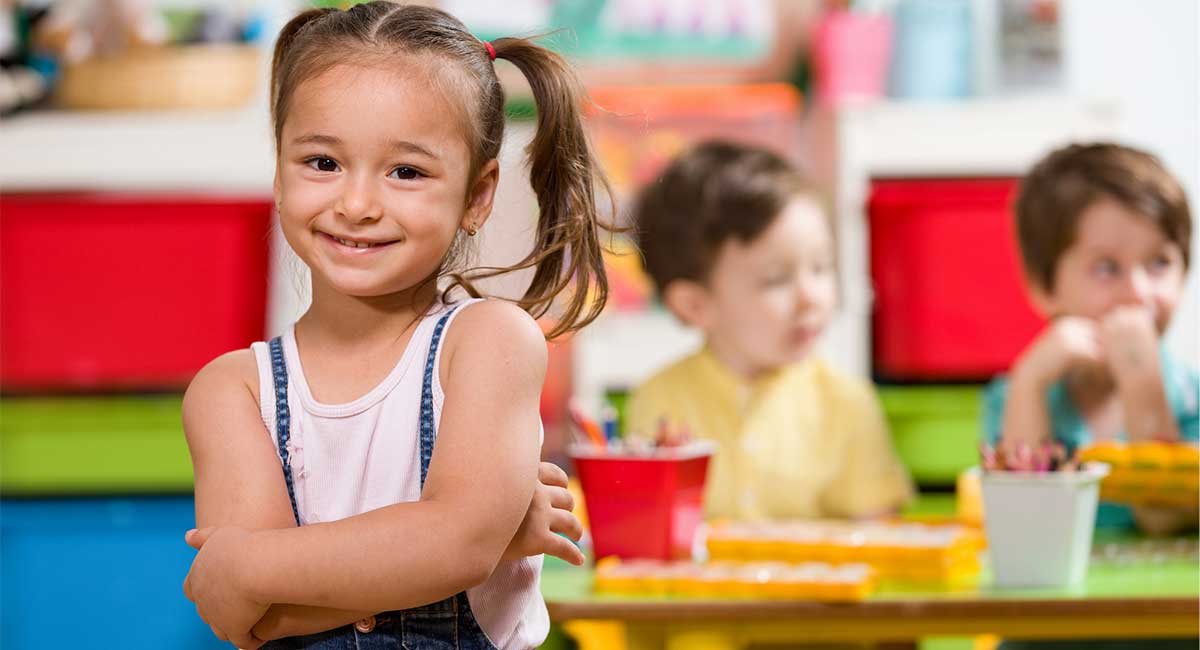
What is resilience?
Resilience is what helps a child recover from a bad grade or getting an answer wrong in class. They bounce back and aim to do better next time.
“If your school-aged child is resilient, they’ll have adopted a reflective thinking style and be less impulsive in their decision making,” Kasey explained.
“As a child’s resilience grows, you may notice that you feel more confident letting them take the lead. You need to intervene less to prevent consequences you’d rather avoid. They’ll have learned to deconstruct problems to build solutions based on previous experience and predicting the outcomes.”
How to nurture resilience in your child
Kasey says that one of your greatest tools is flexibility in responding to their needs.
“Some children will be autonomous and independent and others more emotionally expressive. Regardless of their personality, they will need your support in their own ways.”
By providing a safe place for your child to work through their problems, they can start to form and perfect their own strategies to deal with them.
“Listening to them and helping them to identify the root cause of the problem and formulate a plan to deal with it, enables them to develop their understanding of how to approach finding a solution.”
“A child who has strategies to deal with challenges and a safe space to practise using them, understands that failure is not an end to all their options. With the confidence that they have firm support in you, they won’t shy away from the unknown.”
“Setbacks can affect their confidence. Your reassurance and support will go a long way to get them to try again. Sharing your own experiences will help your child see their situation more objectively. It is important we teach our children that failed attempts are learning experiences. When we keep trying with different approaches it is growth, not failure.”
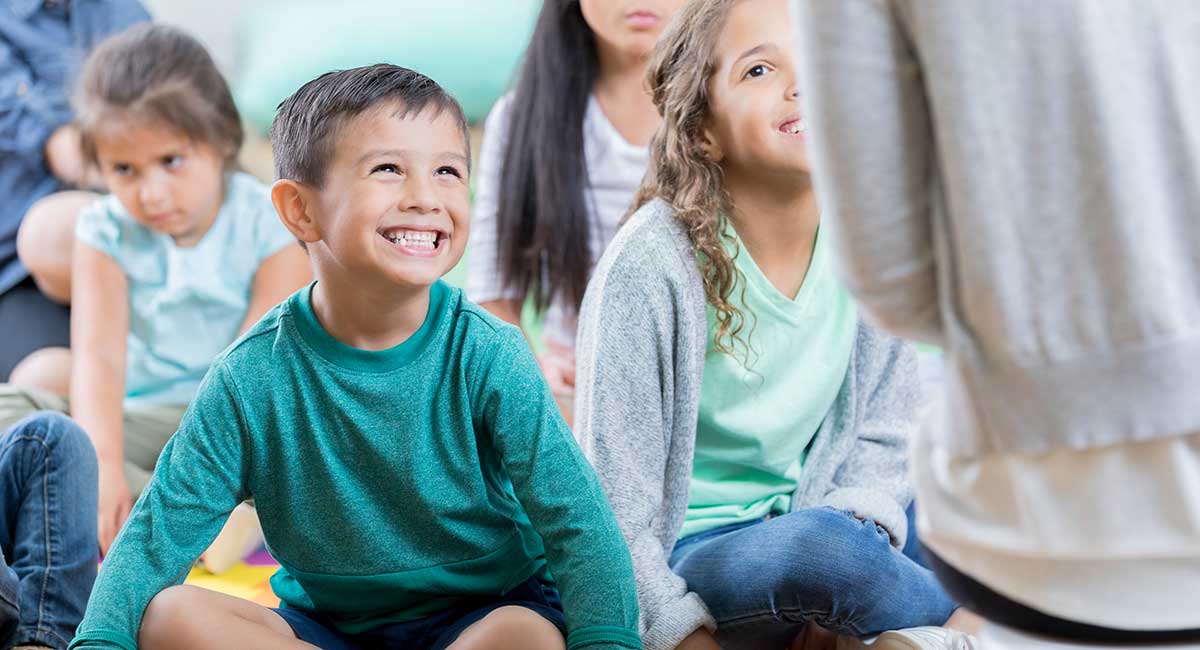
Teaching kids mindfulness with the Peaceful Kids Program
The Peaceful Kids program that is offered at Mayhem to Mindful includes a range of mindfulness strategies, positive psychology exercises, mindful movement and a guided meditation practice to lessen anxiety and stress and build resilience in children.
There are four Peaceful Kids programs offered at Mayhem to Mindful:
Peaceful Kids program 7 – 17 years: 8 weeks
In groups of 6, these one-hour sessions run for 8 weeks and cover topics such as: feelings, coping strategies, positive thoughts, effects of worrying on the brain and body, what we worry about, journaling, gratitude, problem solving, kindness and compassion.
Peaceful Kids program Kindy and Year 1: 5 weeks
This is the same program as for the older kids but specifically tailored for Kindy, Prep and Year 1 kids. Designed to lessen symptoms of anxiety and stress in children, teaches the little ones to self-calm, and empowers children to manage their own anxiety, also includes craft and storytime. Sessions are in groups of 6.
Peaceful Kids Transition to School Pre-school children: 5 weeks
Designed for kids ages 4-5 years, this school transition program includes a range of mindfulness strategies, breathing exercises, craft, story time and meditation to assist children with a range of tools to manage their nerves and learn how to self regulate as they transition to school.
Self-regulation is simply the ability to understand and manage your own behaviour and reactions. It helps children with a smoother transition into school by helping them to learn, behave appropriately and build independence.
Topics include feelings, mindfulness, belly breathing, puppy mind, nourishing ourselves, how worry can feel in our body, how to calm our mind, kindness and compassion.
These sessions are in groups of 6, and each session is 45 minutes.
Peaceful Kids Chill Out sessions 7 – 17 years: 10 weeks
In the Chill Out Kids sessions, children learn essential mindfulness skills to reduce stress, improve attention and improve emotional intelligence. Every session includes a range of mindfulness and positive psychology strategies, craft and a guided meditation.
Topics include mindfulness for kids, emotions, strengthening our brain, positive thoughts, nourishing ourselves, being present, training our attention, body sensations when worried, self-talk, breathing exercises and gratitude. For ages Year 1 to Year 12, sessions are one hour long and held in groups of 12.
Sessions are currently being held in Nerang, Burleigh, Murwillumbah and Terranora. “Our programs are also available to be held at your school, community group or one-on-one,” Kasey added.
“With all the uncertainty in the world, and so close to home right now, there has never been a more beneficial time to start a regular meditation practice,” Kasey said.
And you don’t need to spend long amounts of time per day sitting still with a quiet mind to reap the benefits.
“Research shows that 10 minutes of meditation per day will provide you with the many benefits when practiced regularly. If you have never meditated before, you’ve been missing out on a great chance to improve your self-care and get control of stress, anxiety, negative thinking, and other factors that can affect your wellbeing,” said Kasey “It is such a valuable skill to teach our children from an early age.”
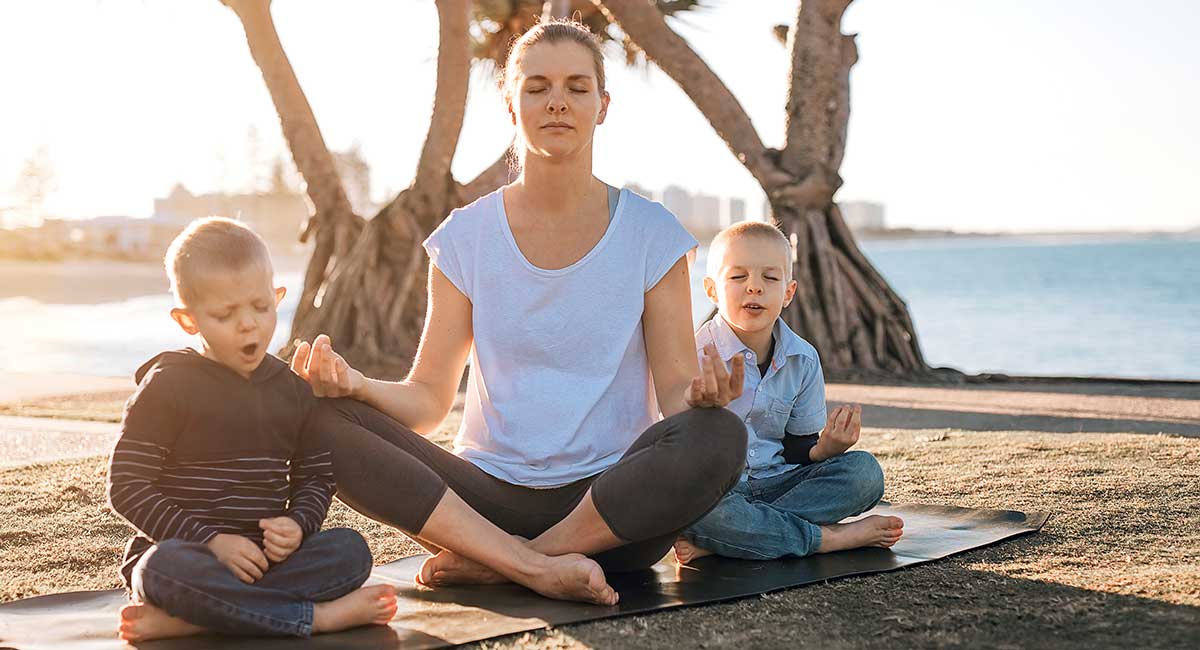
Outcomes from meditation include:
- Lessen symptoms of anxiety and stress in children
- Teaches children to self-calm
- Empowers children to manage their own anxiety
- Develops emotional intelligence skills
- Helps children build their emotional resilience
- Teaches children life-long skills to manage stress and prevent stress build up
- Supports children so they know that they are not alone with suffering from anxiety
“Children learn to create a balanced lifestyle, being in the flow and enjoying more of the present moment,” Kasey said. “They learn the different ways to practice mindfulness and integrate it into their lives,” said Kasey.
You may also like…
Parenting a highly sensitive child
Simple restorative yoga for screen-addicted kids
